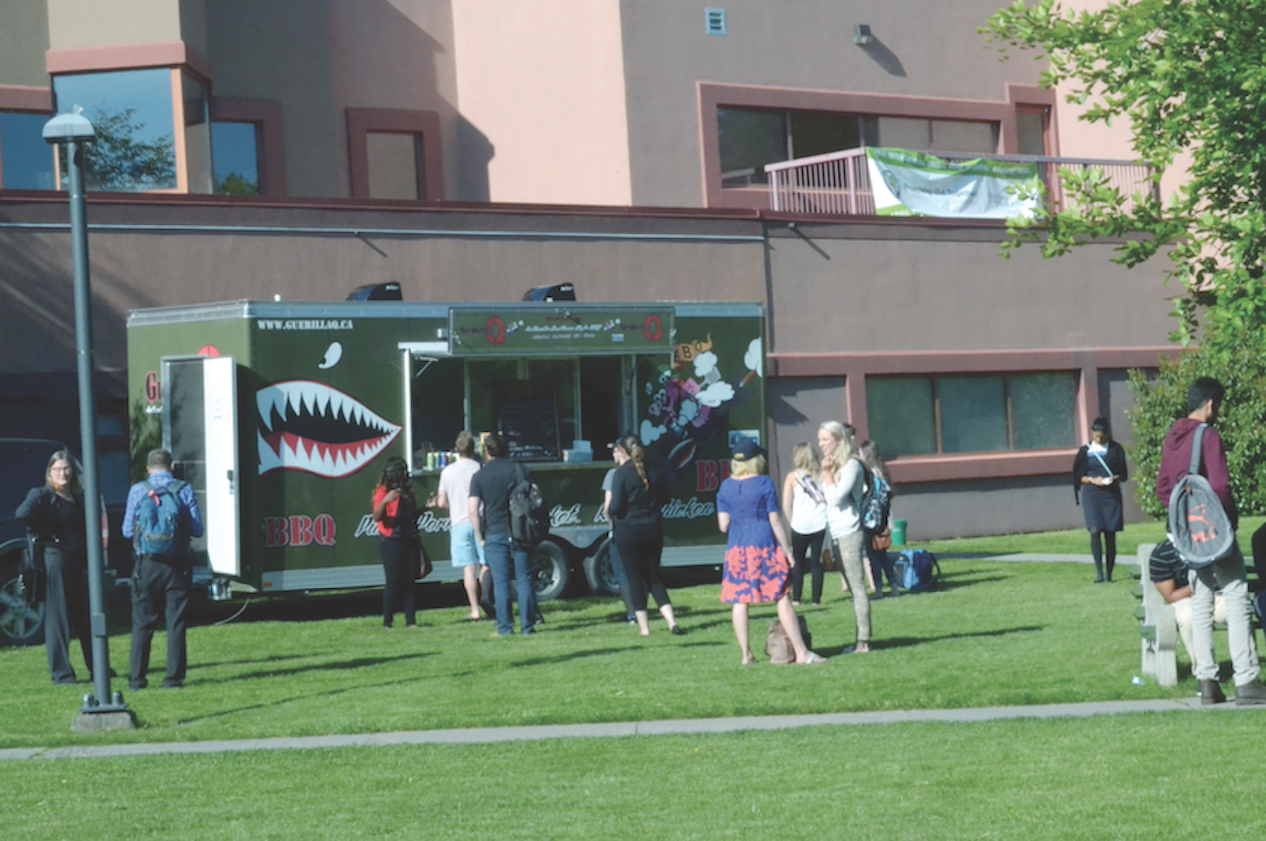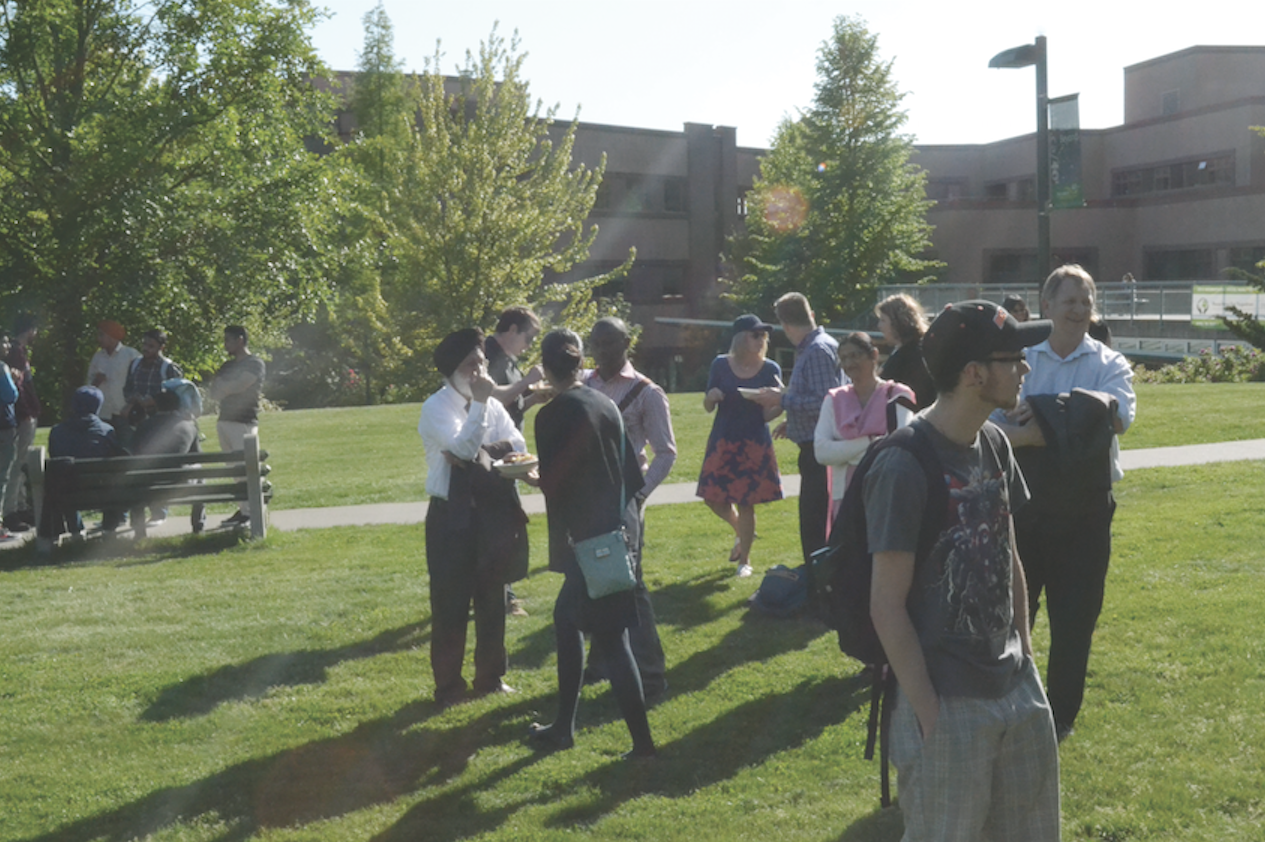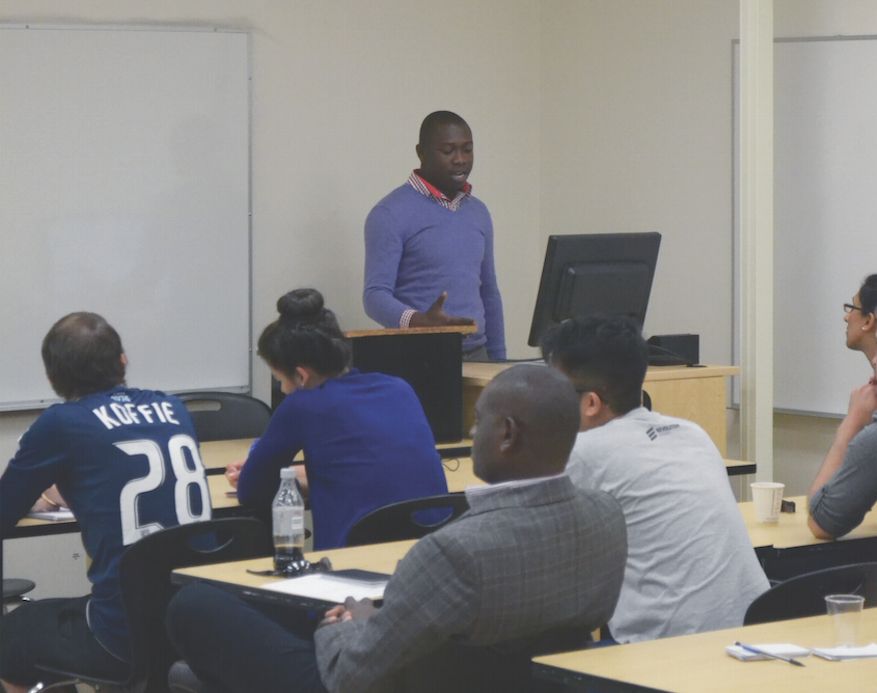Print Edition: May 20, 2015

“Food security is not something that just happens in third-world countries,” said Terisha Mitchell, a UFV geography student in conversation at UFV’s Day of Sustainability. There was much to learn at the event this year, and there will be even more to learn in future.
The UFV geography and the environment department hosted the Day of Sustainability on Thursday, May 7 on UFV’s Abbotsford campus, in conjunction with Aga Khan University, (AKU)’s East Africa Institute in Nairobi, and Panjab University from India. The event follows the recent announcement that UFV received nearly $300,000 for a global study on food systems.
The day was stimulating on a number of levels. There were workshops discussing food security and the impact of individual action. Then there was a tour of the Abbotsford campus on the sunny spring day, with a food truck offering its goods on the Green. Finally, a public symposium gave professors and government officials the chance to discuss food security from their own perspectives.
Though the necessity of the event was stressed at the symposium by multiple speakers, Mitchell expressed it most succinctly.
“[Food security] is local and global. It’s not simply our problem or their problem — to secure food systems locally, we have to secure them internationally,” she said.
Mitchell’s academic trajectory altered course when she saw geography professor Cherie Enns deliver a microlecture last March. While she had a certificate in agriculture and technology before the lecture, her chief interest was not in food security — that changed.
The microlecture was just a taste of what the Day of Sustainability had to offer — not just in terms of the rich subject matter, but of its impact on those in attendance.
UFV receives Diamond Jubilee scholarship
The Day of Sustainability marks the beginning of an academic study by scholars and students from UFV, AKU, and Ardhi Regional University in Dar es Salaam. The study, “Urban Food Systems in Dar es Salaam, Nairobi, and the Fraser Valley: Capacity Building for Policy and Planning,” will examine sustainable agricultural systems in the contexts of urban and poverty-stricken environments.
UFV was recently granted a $293,000 Canadian Queen Elizabeth II Diamond Jubilee scholarship by the Canadian Queen Elizabeth Scholars, an association that promotes projects designed by Canadian universities.
The association also facilitates studies abroad within the British Commonwealth. Twenty-six UFV students will have funded opportunities related to the study of food systems and urban policies in East Africa. There will also be two students from AKU studying at UFV every year for four years.
In light of this recent funding, the Day of Sustainability will kick off years of study examining how food systems can continue in the 21st century, in the face of unprecedented challenges to agriculture.

An afternoon of workshops and food
Four workshops were held in A234 and A235 from 1 to 4 p.m., covering topics such as food security projects in Toronto and a case study of sustainability issues in Nairobi, Kenya. After each presentation, the floor was open to questions and discussion.
Professor James Khuns of Ryerson University spoke to the importance of universities’ involvement and the role to be played by students.
“A challenge … is that students are doing really interesting work but the mechanism isn’t in place to get people and their work the recognition they need,” Khuns said. He recommended somehow connecting student efforts such as the UFV gardening club with the community surrounding the university through farmers’ markets, for example.
Other ideas introduced at the workshops included a student-run food truck and internships with universities overseas to exchange thoughts on agriculture.
The workshops were followed by the tour of UFV, and at 5 p.m., the smell of barbecue wafted over the campus Green. The source: a small green truck decalled with a crazy pig in a plane. Guerilla Q is a food truck from Chilliwack that specializes in traditional barbecue: pulled pork, beef brisket, and ribs. A line-up quickly formed to get a piece of the action.

Hope in the face of great challenges
“How many people ate today?” UFV President Mark Evered said at the start of the symposium. He then drew on his background in neurophysiology and education to describe the correlation between food, learning, and innovation. Scarce food means less neurological development, and if Evered is correct when he says “great ideas are not additive; they’re exponential,” then the loss of the world’s potential human development is unfathomably tragic.
After Evered, professors Enns and Garry Fehr acknowledged UFV’s presence on unceded Stó:l? territory and welcomed a panel of speakers:
Alex Awiti from Aga Khan University in Nairobi; Dhian Kaur and B.S. Ghuman from Panjab University; James Khuns from Ryerson University; Lenore Newman from UFV; George Imbenzi from Kenya Consulate Government and Trade; and Orlando Schmidt, Regional Manager for Coast Region of BC Ministry of Agriculture.
Discussion began with the political influence of food production.
“Food is the new oil,” Imbenzi remarked. Then speakers moved on to the dwindling sources of water in Punjab, India; to Canada’s own agricultural history; and to the loss of the planet’s arable land.
The facts were alarming and overwhelming. Yet somehow, those who lingered after the symposium were still smiling and joking. When asked how people can stay optimistic in the face of such struggles, Awiti answered that new tools, along with breakthroughs in computing, will give us measurable advances in food production.
“The way to stay hopeful is to know we can change,” said Awiti.


